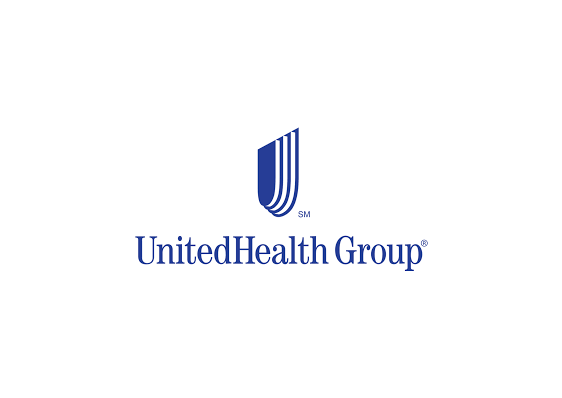What we think about UnitedHealth Group (UNH)
UnitedHealth Group in Three Words: American Health Insurance

Discuss UnitedHealth in our Community Forum
Background
Minneapolis-based UnitedHealth Group is America's largest private health insurer. It provides insurance coverage for nearly 150 million patients globally and has 350,000 employees.
The company operates primarily in two divisions: UnitedHealthcare (health insurance) and Optum (data analytics and pharmacy services).
Conviction Rating Changes:
Join 7investing to get access to this section
Recent Company Updates
May 19,2025
UnitedHealth Group is America’s largest health insurance company, providing coverage for 50 million individuals with employer-sponsored or individual health plans.
It generated a whopping $400 billion in revenue last year (+8%) and churned out an equally-impressive $24 billion of operating cash flow. Because most employers or insured members are loathe to changing plans; the switching costs create a profitable recurring stream of recurring premiums every year.
The company is also extremely efficient, with an operating cost ratio of just 13.2% during 2024. This represents the overall operating costs divided by sales from premiums (where lower is better). Its operating cost ratio has improved nearly 200 basis points in two years, down from 15% in 2022.
Generally, being the Top Dog in a massive and highly-profitable industry with a recurring revenue stream is a great company to be invested in.
Yet United has become increasingly controversial during the past year.
In December, the CEO of its insurance business was murdered on the streets of Manhattan for an unclear motive. That raised a lot of eyebrows and immediately threw the entire corporation into the headlines.
Things got worse in the Spring, when the Department of Justice began investigating the billing practices of United's Medicare Advantage plans. The company's Optum division employs physicians and doctors, whose job is to diagnose patients for medical tests or procedures. For Medicare plans, insurers get reimbursed by the government. Several cost-cutting government organizations -- including Trump's new Department of Government Efficiency (DOGE) -- are taking a closer look to see if Optum's doctors have been purposely overdiagnosing patients in order to run up the tab.
In response to the increasing scrutiny from both the public and the government, UnitedHealth cut its full-year 2025 guidance and cited "higher-than-expected costs for its Medicare division" as the reason (this was similar to other insurers as well, who also cut their full-year forecasts). United reduced its profit guidance by 12%; and the new forecast would represent a 5% decline in adjusted earnings per share as compared to fiscal 2024.
After seeing its price quintuple during the last decade, UnitedHealth's stock has suddenly been cut in half during the past month alone.
The question for investors now becomes whether the DOJ and DOGE investigations are temporary speed bumps or long-term impairments to this business.
With regard to Medicare reimbursements, the government does acknowledge that health care costs are on the rise. The CMS is in the process of increasing its reimbursement rates for Medicare Advantage plans by an average of 5.06% this year. That's higher than the 2.83% increase that was expected as recently as January, yet it also lags the 9.04% effective growth rate -- which is the cost of care billed by providers to patients enrolled in Medicare Advantage plans. In other words, insurers are now getting slimmer margins on any Medicare plans they are providing benefits for.
With regard to the leadership, United is bringing its former CEO Stephen Hemsley back to the helm. Hemsley served as Chief Executive from 2006 to 2017. He led the company through the difficult period of the Great Financial Crisis and pushed hard for a transition from fee-for-service to value based care (essentially reimbursing for the quality outcomes rather than just quantity of tests). Though he is analytical and data-driven, he also has his fair share of controversies as well -- including being the CFO of Arthur Andersen just before its involvement in the Enron scandal, was under an SEC investigation for backdating stock options, and was reportedly America's highest-paid CEO in 2010 after receiving total compensation of $102 million.
For those with an iron stomach that's able to endure all of the above, UnitedHealth's stock is now priced at less than 20x free cash flow. Five insiders -- including Hemsley, CFO John Rex, and three Board members -- collectively purchased more than $30 million of company stock on the open market this month after the sell-off due to its reduced guidance. That's a big sign of confidence that the leadership team believes they can re-right the ship to a better course.
Even though this very profitable and incredibly sticky business is now on sale, I'm not sure it's worth the risk just yet. The Federal government spends around one trillion dollars on Medicare each year, so negotiating even slight reductions in reimbursement payments can quickly total tens of billions of dollars in savings. There's no telling yet what the DOJ investigation will turn up; though it's likely there will be financial penalties and perhaps demands to restructure parts of the business.
My crystal ball is cloudy on how United's future will look. I expect its margins will compress and its operating cost ratio will rise. That could put pressure on the dividend, which the company has proudly increased at a double-digit annual rate for several years.
Yet there's no denying that this is a deeply-entrenched company in one of America's largest industries who is also extremely difficult to compete against. UnitedHealth needs to ensure it's the cure -- not the ailment -- to America's health care woes. This is a developing storyline that is well-worth keeping a close eye on.
April 17, 2025
UnitedHealth Group's shares are plummeting today based upon lower-than-expected forward guidance for 2025. United's Medicare business is experiencing much higher costs than anticipated, due to patients increasing their usage of hospital and outpatient services.
The company reduced its full-year earnings guidance to between $26 and $26.50 a share, down from its prior projection from January of $29.50 to $30 a share.



